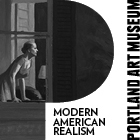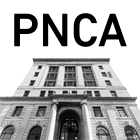
|
||
|
Portland art blog + news + exhibition reviews + galleries + contemporary northwest art
|
||
Retinal Reverb  Cheese Puff, Mary Magsamen & Stephan Hillerbrand In case you missed it in Melia's post earlier, here's all the info on what looks to be one of the best group shows of the year. Kicking off this year's PDX Film Fest is Retinal Reverb, featuring video work that exists outside the cinematic experience. Installations, single channel video, and sculpture will be exhibited at AudioCinema for four days only so don't delay. Honing their curatorial chops, Stephen Slappe and Mack McFarland have selected a impressive group of artists who's approach to the medium ranges from risky and humorous to sensitive and contemplative. With a venue well-suited for this type of undertaking, I sense Slappe and McFarland will deliver. Retinal Reverb features the work of the following artists: 1. Mike Bray, Eugene, OR 2. David Borengasser, San Francisco, CA 3. Emily Bulfin & Tahni Holt, Portland, OR 4. Terry Chatkupt, Portland, OR 5. Brian DeLevie, Denver, CO 6. Marianna Ellenberg, Brooklyn, NY 7. The Experimental Team “Hope” Folk Art Ensemble Experiment 8. Laura Fritz, Portland, OR 9. Dan Gilsdorf, Portland, OR 10. Hooliganship, Portland, OR 11. Scott Kildall, San Francisco, CA 12. Mary Magsamen & Stephan Hillerbrand, Houston, TX 13. Vanessa Renwick, Portland, OR 14. Edie Tsong & Pete Kuzov, Santa Fe, NM 15. Cat Tyc, Portland, OR Retinal Reverb AudioCinema • 226 SE Madison (under the Hawthorne Bridge) Opening reception Wednesday April 25, 8p-12a $3 suggested donation (free w/PDX FF pass) Exhibition runs April 25-28, 2007 Exhibition hours for April 26-28 are noon-6p FREE during these days/times Posted by Jenene Nagy on April 23, 2007 at 19:49 | Comments (12) Comments This is exactly the kind of multimedia show I love to see. I won't be going to see it, however, because it's happening in a venue that doesn't allow gay people or African Americans. Wait, cancel that. I meant that it doesn't allow people with disabilities. Somehow that kind of discrimination is permissible in Portland. My wife, an artist, photographer and film aficionado, uses a wheelchair and is therefore not welcome at AudioCinema, so neither I nor our friends (and some visiting friends in town that weekend) will be going. We go to museums and galleries several times per month (it's one reason I read this blog), and it's infuriating that we're not allowed to see this one. She called the organizers and asked them what they were going to do about allowing wheelchair using Portlanders to see the exhibit, but they have done nothing to remedy the situation. There's really no excuse for venues hosting events that invite the public to be inacessible these days -- more than 17 years after the passage of the Americans with Disabilities Act -- and there's certainly no excuse for the people who organize these shows to be ignorant of accessibility issues and to schedule them in inaccessible places. It's not like this is the only place in town that could host such an exhibit. This has been happening for so long in this supposedly progressive town that I think there's really little choice but for anyone who loves art and justice to boycott these shows until the organizers wake up and schedule them in places that welcome all Portlanders. Nothing else seems to get their attention. And why is PORT enabling discrimination against people with disabilities? If the exhibit -- no matter how worthy the artists involved -- had a sign out front that said NO NEGROES OR GAY PEOPLE ALLOWED, would you publicize it on your blog? If PORT believes in justice, it will remove this announcement from the blog, urge its readers not to attend this show, and henceforth refuse to publicize these discriminatory exhibits. PORT could thereby play a valuable educational role in making sure that organizers don't discriminate against disabled Portlanders if they want their shows publicized. If the organizers and artists involved truly care about equal justice and artistic accessibility, they will move the entire exhibit to an accessible venue during or immediately after the current run. And PORT should say to them: we'll be glad to write about your exhibit just as soon as it happens in a show that doesn't discriminate against disabled Portlanders. Posted by: brett This is indeed a sticky issue. You are right of course. Still, it isnt easy at all to get 10,000 square foot warehouse spaces (that are secure) donated.... it's a very difficult process. Warehouses are a kind of low cost temporary space. Funding is an issue here and with realestate the way it its a lot of landlords arent willing to lend easilly acessible spaces because they are more rentable. I also think there is probably a way to modify the loading dock in back to make it accessible, I'll make a few phone calls to the organizers. Once again the funding issue is huge here but Ive spent significant time in a wheelchair so Im pretty sensitive to your plight. Ideally, the city could have a nice large open space (at the colliseum?) that had the appropriate accessibiliy.... but as it stands city funding (and involvement) is so nonexistant that it becomes quite a pickle and the arts are consticted to low budget solutions. That said, Im certain something can be done.... this is Portland after all. Posted by: Double J First off as one of the curators for this show I would like to cast off this idea that we, Stephen or PDX Film Fest, are guilty of "discrimination against people with disabilities" as brett has charged. Nor do I hate NEGROES OR GAYs or puppy dogs. This space was donated to us at a time when no other were available. As organizers of events in the City know, space is not such an easy affair. AudioCineam is working towards installing a lift, however they do not yet have the funding for such an endeavor. [Could brett, PORT and I maybe hold a fundraiser for such an expenses?] A major flaw in the Americans with Disabilities Act, much like No Child Left Behind, is that there is an ideal idea with no funding. I was never called and so can not speak for whom ever was. I would love to have this exhibit run again at such a location that would be available for all. I would love to take this show to cities where these kind of thing do not occur, such as Avella, PA, Caledonia, NY, Fallujah, Iraq, etc. and would encourage brett and his wife to help us secure such a location in such a city or town. In closing,I would like to apologize to all people who will not be able to see the show, for whatever reason that they have and that they may feel is my or our fault. Mack McFarland Posted by: Mack McFarland Mack: I appreciate the apology and commitment to change things, and of course I understand that no one wants to keep disabled people out of art exhibits. But while we're all basking in good intentions and regrets, my wife still can't get into a show she really wanted to see. She's just as excluded from your event as she would be if Rush Limbaugh himself were sponsoring it. I know you didn't have bad intentions, and I realize how hard it is to make art happen in this town with such poor support from the state etc. I admire your efforts, and I think this show looks fantastic, which makes it all the more painful that we can't get in to see it. I'm glad you have good intentions, and I'm sure the city could do more, but when you host or publicize an event, you take on the responsibility to make sure everyone's able to come. So by intentionally scheduling this exhibit in a place that forbids disabled arts lovers to see it, you become part of the problem -- you are perpetuating discrimination, which my dictionary defines as "the unjust or prejudicial treatment of different categories of people or things." One of the many lessons of the civil rights movement is that institutional discrimination on the basis of race wasn't primarily perpetrated by evil guys with bad intentions. Sure, there were plenty of them, but the system stayed in place because, for almost a century, too many well intentioned people couldn't be bothered to do something about it. Some artists did bother. For example, several important musicians helped speed up change in the South by refusing to play halls that didn't allow black and white musicians to mix onstage, or made blacks sit in the balcony only. They refused to stay at hotels or eat at restaurants that practiced discrimination. It often cost them money and time that could have been spent working on their art, but they did it because they cared about justice. My wife has organized literally hundreds of arts and other events, and she always made sure they welcomed everyone. How many Portland artists can say the same thing about their efforts to secure justice for people with disabilities? It's easy to forget now that civil rights for African Americans weren't achieved solely because of good intentions but because a lot of people put in a lot of hours of thankless work, sometimes at great risk. Sometimes fighting discrimination means getting clubbed by racist cops. We're lucky today: it may mean something as unrisky as making nine phone calls to find a nondiscriminatory venue instead of three, or organizing artists and politicians and venue owners to make those nice intentions real. Artists are supposed to be creative -- with all the warehouse space and empty office space in Portland, you really can't find or modify another venue welcome to all? I've seen wonderful theater productions in the empty office suites of the Goldsmith building, for example. If literally every other space in town wasn't available, then modify the exhibit so it fits the spaces that ARE available. I wouldn't be so frustrated if this weren't the sixth or seventh time this has happened in the year we've lived in this supposedly progressive community. Each time, apologies are issued and hopes and regrets are expressed -- and then comes news of the next exhibit that won't let us in. My guess is that other spaces are available, but they'd take extra work to find or modify, and those involved in these exhibitions are either ingorant of inaccessibility or don't care enough about justice to do that work. I'm trying to enlighten them. It's real easy for artists and arts advocates to pass themselves off as progressive, but when it comes to actually doing something about injustice, I'm not seeing any action. How are they any better than average redneck who votes against domestic partnership or today's other civil rights issues? Another lesson of the civil rights movement is that acts of discrimination don't just affect those excluded by them, whether they're black or wheelchair users or gay people who want to get married. They affect all of us, and so it's up to all of us -- artists, bloggers, able-bodied -- to do something about it when we can. Like the man said, "Injustice anywhere is a threat to justice everywhere." And please don't put the onus on my wife to set up a fundraiser; she's spent her whole life and a good portion of every day fighting for these rights, including crawling up the steps of the US Capitol to help get the ADA passed, and sometimes she'd just like to go an art exhibit without having to fight to get in. It's been 17 years since the ADA granted disabled people civil rights. How long are we supposed to wait for certain Portland artists to get over their obliviousness to civil rights? While all of you PORT readers and artists are enjoying the exhibit, I hope you spare a moment to think about those who aren't allowed to do so because of the way they were born. I am encouraged by the sincere expressions of apology and support that have appeared here in response to my admittedly frustrated (though accurate) post. I'm eager to see what real, concrete action is taken next -- by PORT, the organizers of this exhibit, the artists involved, and other artists reading this. Most of all, I'm eager for my wife and I to be able to see the work of these wonderful artists. Thanks in advance for your efforts in helping us be able to do so. Please report your efforts here on PORT so we can all be part of the solution. Posted by: brett First, Portland is hardly oblivious to this, especially with your activism. (Also, why the name calling, do you honestly believe these artists are actively trying to exclude you?) The problem stems purely from the issue that the artists and their efforts are already marginalized to the n-th degree by the lack of funding, they aren’t sitting on million dollar budgets that ignore your plight… they are simply wondering how to pull off a nice show with a couple of hundred dollars in the only space that was available. By being forced to be purely opportunistic the artists are being forced into a decision, have a show or not. I suggest you could form a non profit that raises awareness and funds to address your very valid and important concerns at these fringe venues. These artists are putting on guerilla shows as a similar kind of (cultural) activism and they could certainly use your help (maybe the city can do something like produce a kit that helps temporary fringe shows become accessible?). The Everett Station Lofts issue is somewhat different because they are a permanent venue and yes it took 9 months to get action… but you got action and they are addressing the accessibility issue. Persistence pays off and though I’m certain it would have been welcome to have faster action I think your efforts can both promote accessibility awareness/action as well as promote the cultural activism you wish to take part in. Also, PORT doesn’t really do investigative journalism… we focus on critical dialog of cultural products… it’s about all we can do to keep up with that mission on our small budget. PORT is another pragmatic cultural solution and we will support artistic expression over silencing or censoring it. By promoting a worth while show PORT makes your plight to see the show more poignant, furthering your very worthy efforts. It’s a good fight. Still, I suggest you give the artists some credit, they certainly aren’t trying to exclude people… frankly they need help to address your concerns (and their own like; live work space, venue space, grants, etc.). Grinding alt venue art shows to a halt in the city isnt productive either. I invite city officials and accessibility experts to make their own comments here. Posted by: Double J As a man who "happens to be gay" your comments caught my attention right away - especially as I walked through this wonderful exhibit today. Your wife should see this show. Of course, as an able-bodied guy I didn't think twice about entering the building. In fact, when I went to the space, I went to the side where the ramp is (where PICA presented a portion of TBA) and that side was not open, so in turn I had to head back to the side entrance. Perhaps by writing, and getting a very warm response from the curator, your wife will find reasonable accomodations, you have certainly made the first steps here. Portland has a long history of accomodating people and idioms, and I do not think your comments fall into a void. This topic has been generated over and over in many dialogues, even here on Port in the past. In the 80's I worked for VSA Arts, an organization trying to do just this, break the barriers that exist (there was once an office in Oregon, and I'm unsure if that still exists). I'm quite proud to have been the first initiaator of this cultural access guide back in 1987 (http://www.accessexpressed.net/culturalDirectory.php), I'm unsure if there is an equivalent here in Portland - but it would be worth a query with RACC and the Oregon Arts Commission to see what they have done in this area. You may have read the interesting perspective of an artist who uses a wheelchair here in Portland that appeared in yesterday's WWeek titled "The Art of a Good Vent": http://www.wweek.com/editorial/3324/8879/ It was interesting, as when I read this it reminded me of the same tone so clearly reminiscent of the 1980's - prior to the passing of the ADA that you mentioned. Are we 20 years in the past? It seemed odd to me that artist Carole Patterson who is the subject of the piece, pinpoints the Everett Station Lofts, and that the subject here is Audio Cinema. Two somewhat off-the-beaten-path alternative viewing locations, in otherwise transitional neighborhoods to varying degrees. Of course I mention this because: 1.) I ran a space at the Lofts a few years back and one of my regular guests was cartoonist Callahan, and I was thrilled that he made it over the tiny lip at the door. Awareness is one thing, making practical changes is great - and it seems from the above article that change is afoot. Some forms of access are really simple. Other capital improvements are much more costly, and take time, and often resort in this kind of social/political quagmire. But I do not think it's shortcoming, it's really about voicing your needs, and meeting standards. 2.) Maybe these concerns would be best brought up with the Mayor's Office or with Sam Adams? It would make sense to find practical ways to implement Cultural Access Initiative Grants that could open more doors. 3.) Alternative commercial spaces fall under different guises than non-profits, but I say, build a bridge and they will come. It makes sense to reach out to a general audience at all times. Of course, conceptual accessibility is a whole other enchilada...... Posted by: TJ Norris Thanks, TJ. My wife has indeed talked to Sam's office, and they are being very supportive. I think change is afoot, so to speak, and we appreciate any efforts artists and arts advocates can make to open Portland's burgeoning art scene to everyone. I'm hoping that, despite the defensiveness I've seen here, once most artists and arts advocates with a conscience learn about these obstacles, they'll do everything they can to overcome them rather than just making excuses. For example, I wonder if the organizers and artists involved in retinal reverb are making any efforts now to find a non discriminatory venue for this exhibit after its current run so my wife and I and Portlanders with disabilities can see it. Are others reconsidering their choice of venues for future exhibits, or are we going to have go through this again? And I might also suggest that this injustice might make a great inspiration for some art.... Posted by: brett
I spoke with a representative of Sam Adams office on Tuesday and we discussed possibilities for sleuthing some resources and training for Portland arts organizations to address some of these issues in the near future--for signed performances and assistive listening devices, Brailled and large print programs and brochures, mobility access--based on the organization's needs. One difficult reality is that most of the more interesting work in Portland is happening on the fringes: in homes and basements, warehouses and offbeat funky "churches" of community and art. That said, I have helped start a number of very grassroots, underfunded organizations successfully and have never had to compromise access of any kind in order to do so. We planned the events with access in mind and scraped together the money to "make it so." I don't have the mindset that sacrificing access for cost is ever valid, which means for me, that option is off the table completely. I understand the financial dynamics, how organizations/individual artists feel like it adds to their already hard work. Often overburdened artists often just throw up their hands at the prospect (fighting against culture on many different fronts, underfunded, overworked and underappreciated, this can seem like just one more thing). I also have seen how valuable providing inclusive organizations/access can be to the organizations in what they gain in participation--audience, volunteers, donors, performers, etc. I also recognize that I've been doing this kind of resource and access organizing for more than half of my life and it comes as a new idea or skillset to folks who mean well but don't have practical experience making it work. I am looking to work with artsy folks who'd like to learn these skills and work through the intracacies of Portland's unique situations/venues/scene. I'm tired of doing this alone, so thanks to mack, tj, jj and brett for thinking about how to be a part of the solution to a problem that has apparently been surfacing in Portland for a generation and is taking a toll on all of us. Posted by: carolezoom PSA: 'invisible.other' which is on view at the accessible New American Art Union through Sunday. If you haven't stopped by I hope you will. Posted by: TJ Norris "Sometimes the needs of the many outweigh the needs of the one." Posted by: Amsterdammer i know your offhand comment about the needs of the many might seem to be true but in this case i disagree, and so did spock in the end (see below). (anyway, it's probably a pretty easy thing to say if you've always been in the many.) there are long term reprecussions to excluding people with disabilities from these events-- whether it be retinal reverb or the upcoming pdxpop festival slated for audio cinema. the costs of that exclusion to the individuals excluded and the community eroded cannot be estimated by typical cost benefit analysis. a civil right is a civil right no matter how "inconvenient" it may seem to some to honor it. is diversity a hard issue in portland? sure is...does that mean we should ignore it since the majority population is white? don't think so. first they abridge my rights, then they abridge your rights...then society falls apart. in this case it's a small community, and the needs of the many are also the needs of the few. we need a stronger, more vibrant, more collaborative and better funded arts community. we need more audience, we need more volunteers. with 24% of oregon's population being people with some kind of disablity, it's a mistake to exclude folks from the fold, folks who might be valuable contributors of time, money & talent. also even startrek where your quote comes from repudiates spock's original statement, and spock comes to understand why in the episode http://www.startrek.com/startrek/view/series/MOV/003/synopsis.html ...Spock questions why the Enterprise crew risked their lives and careers to rescue him. As his friend Jim reminds him, sometimes the "needs of the one outweigh the needs of the many." Posted by: carolezoom Spock has turned his back on Vulcan values and become an artist......... Posted by: Jessica Bromer Post a comment Thanks for signing in, . Now you can comment. (sign out)
(If you haven't left a comment here before, you may need to be approved by
the site owner before your comment will appear. Until then, it won't appear
on the entry. Thanks for waiting.)
|
| s p o n s o r s |
 |
 |
 |
 |
 |
 |
 |
 |
 |
 |
 |
 |
 |
 |
 |
 |

|
Site Design: Jennifer Armbrust | • | Site Development: Philippe Blanc & Katherine Bovee | |


![[TypeKey Profile Page]](http://www.portlandart.net/nav-commenters.gif)